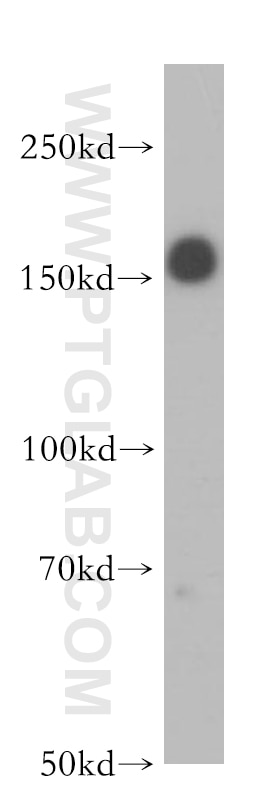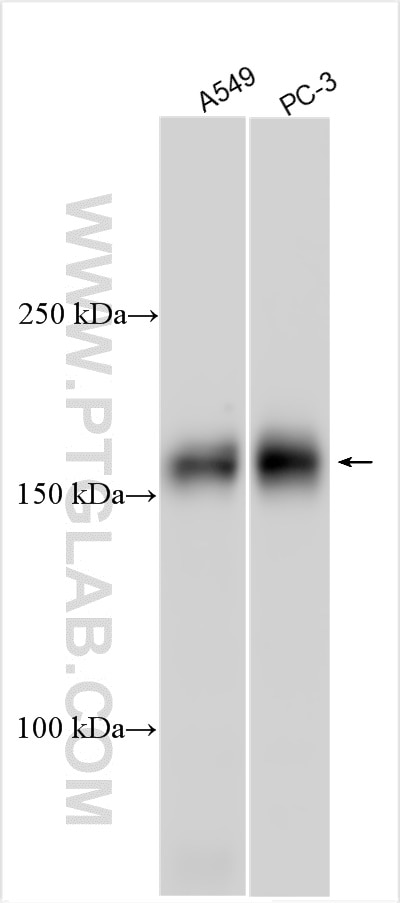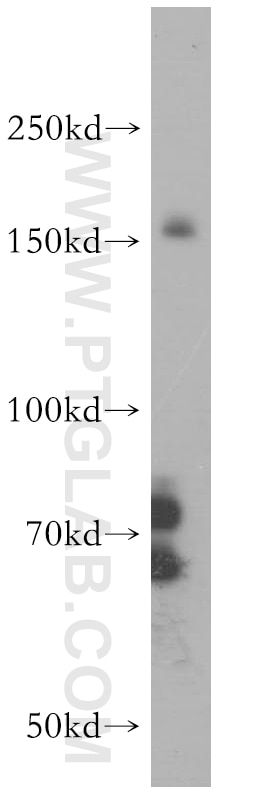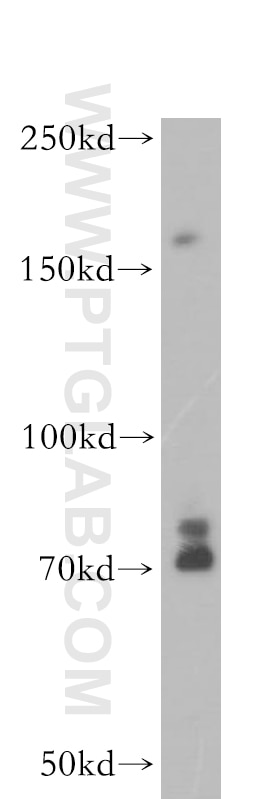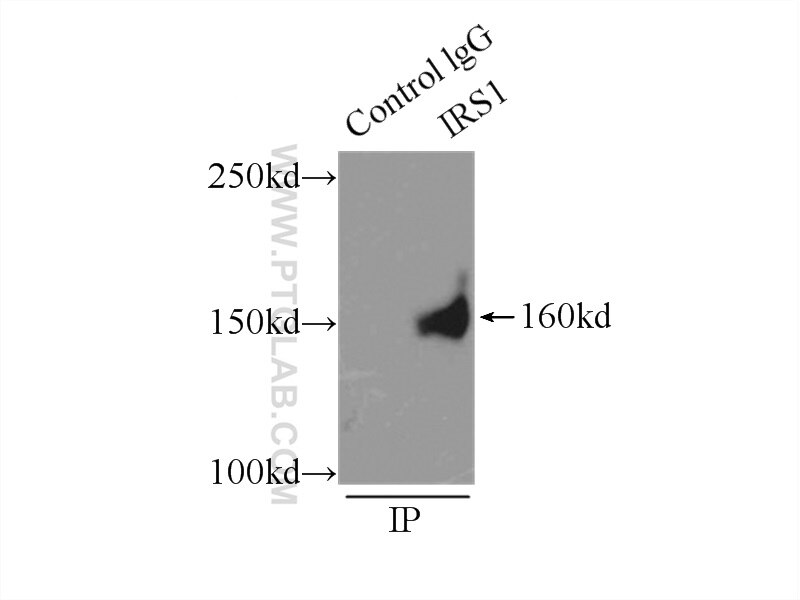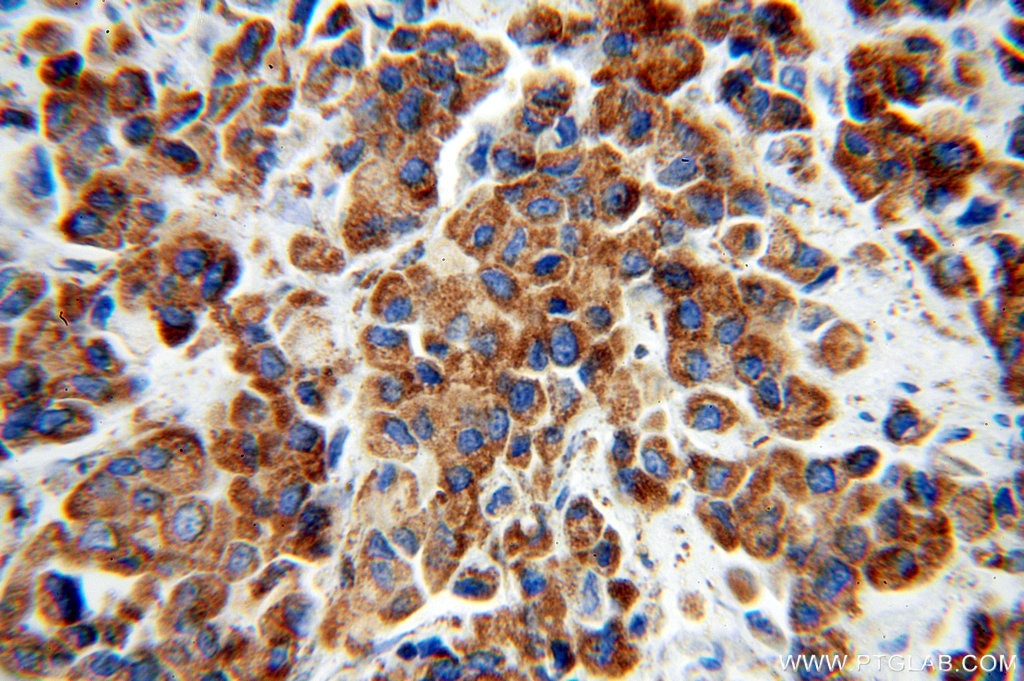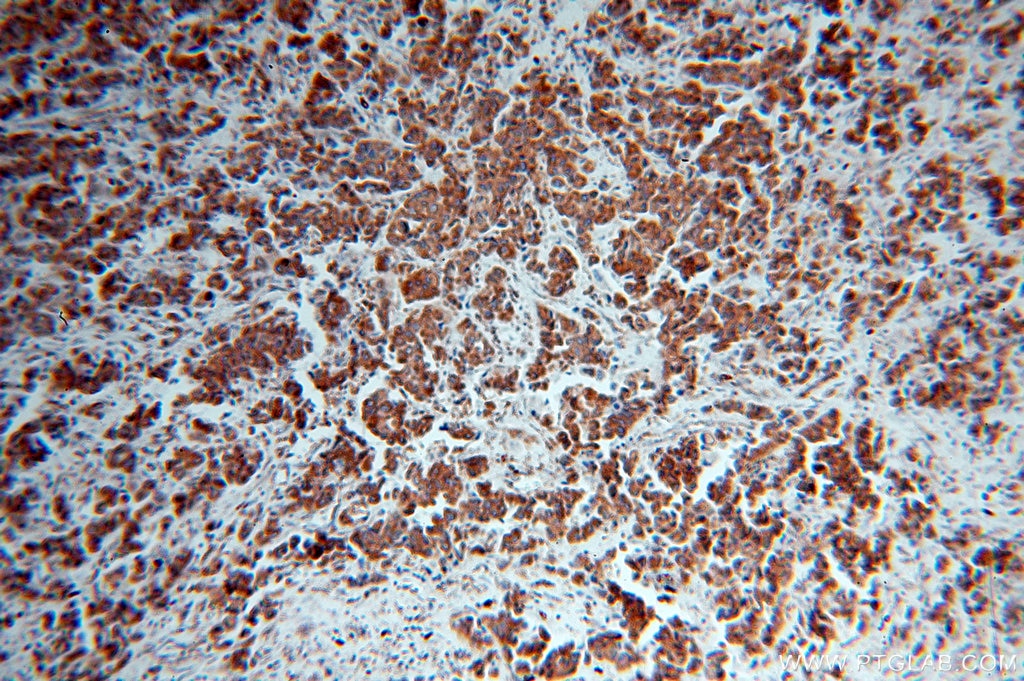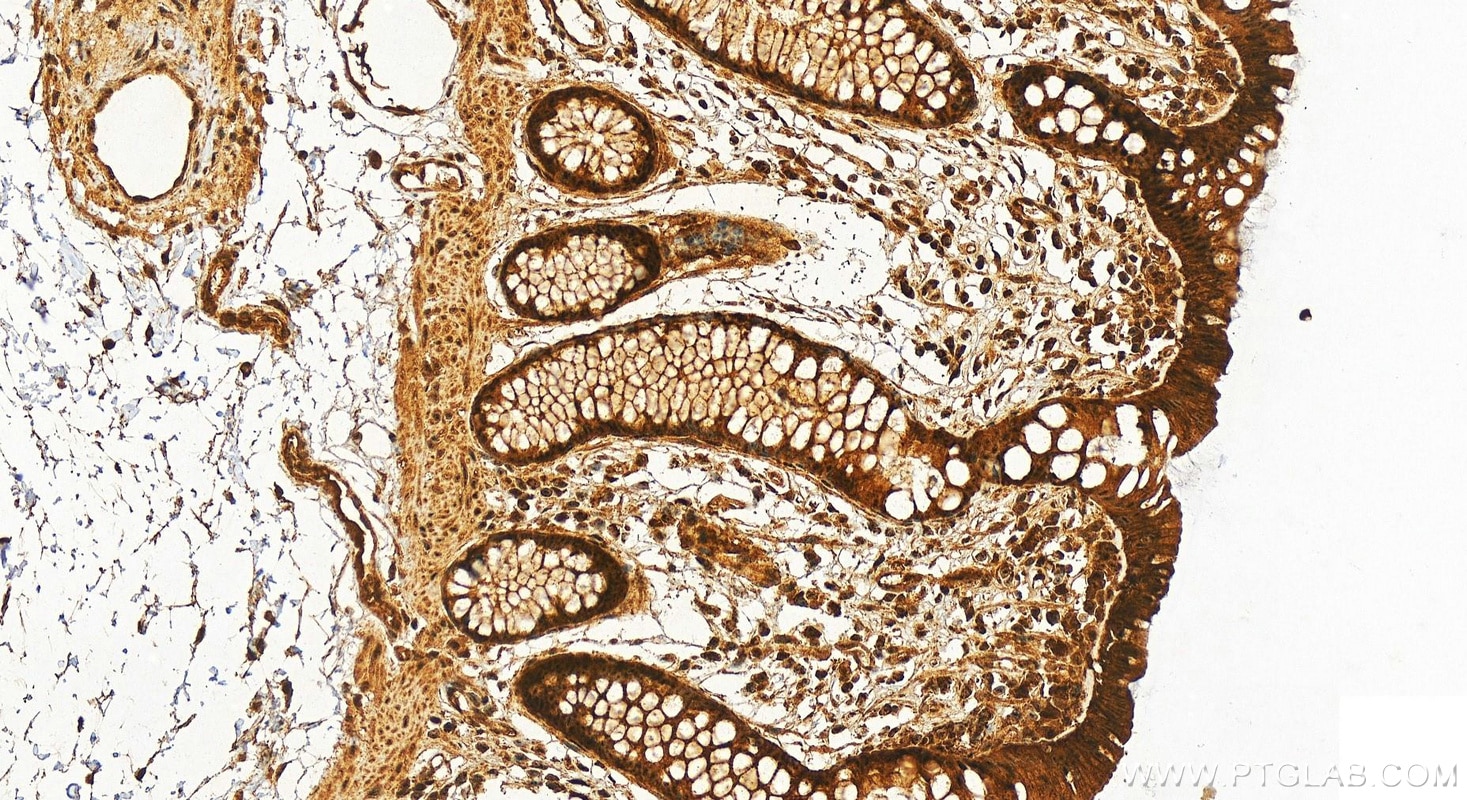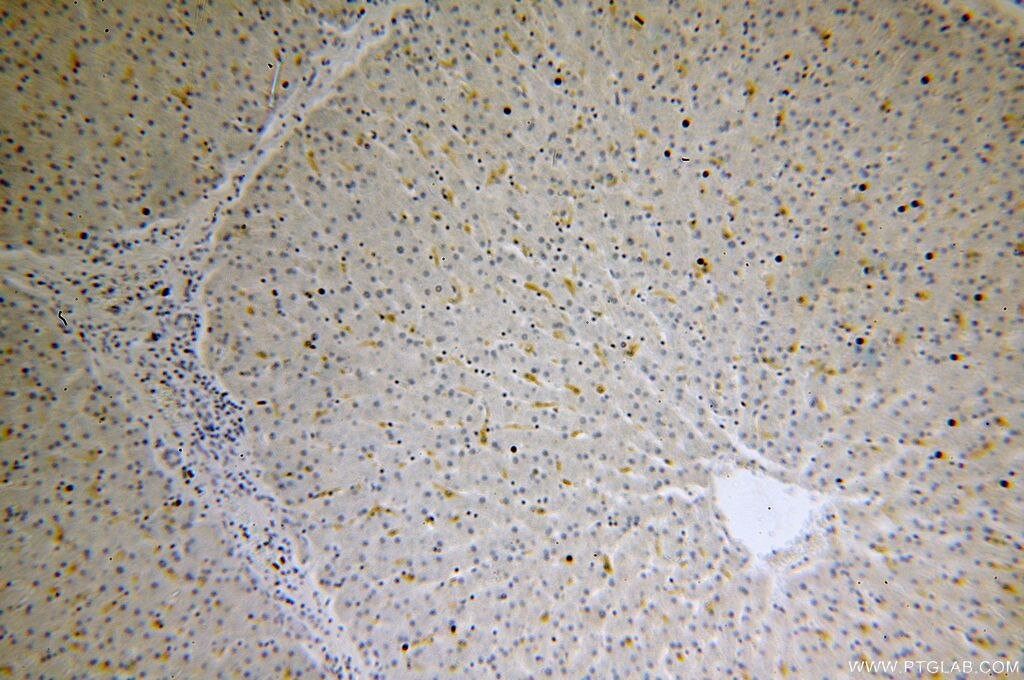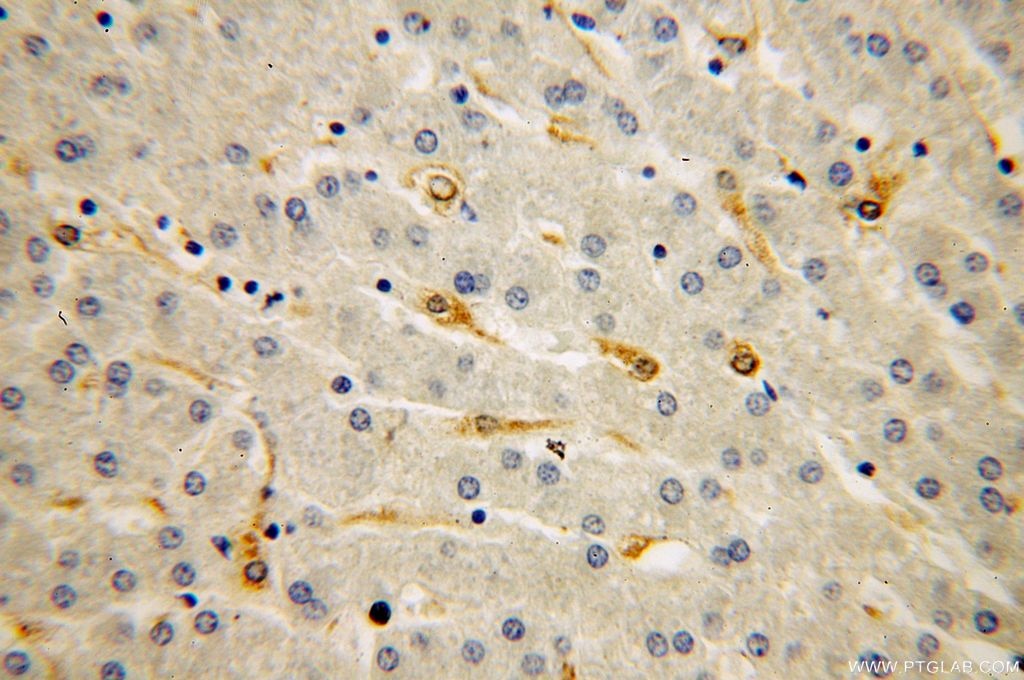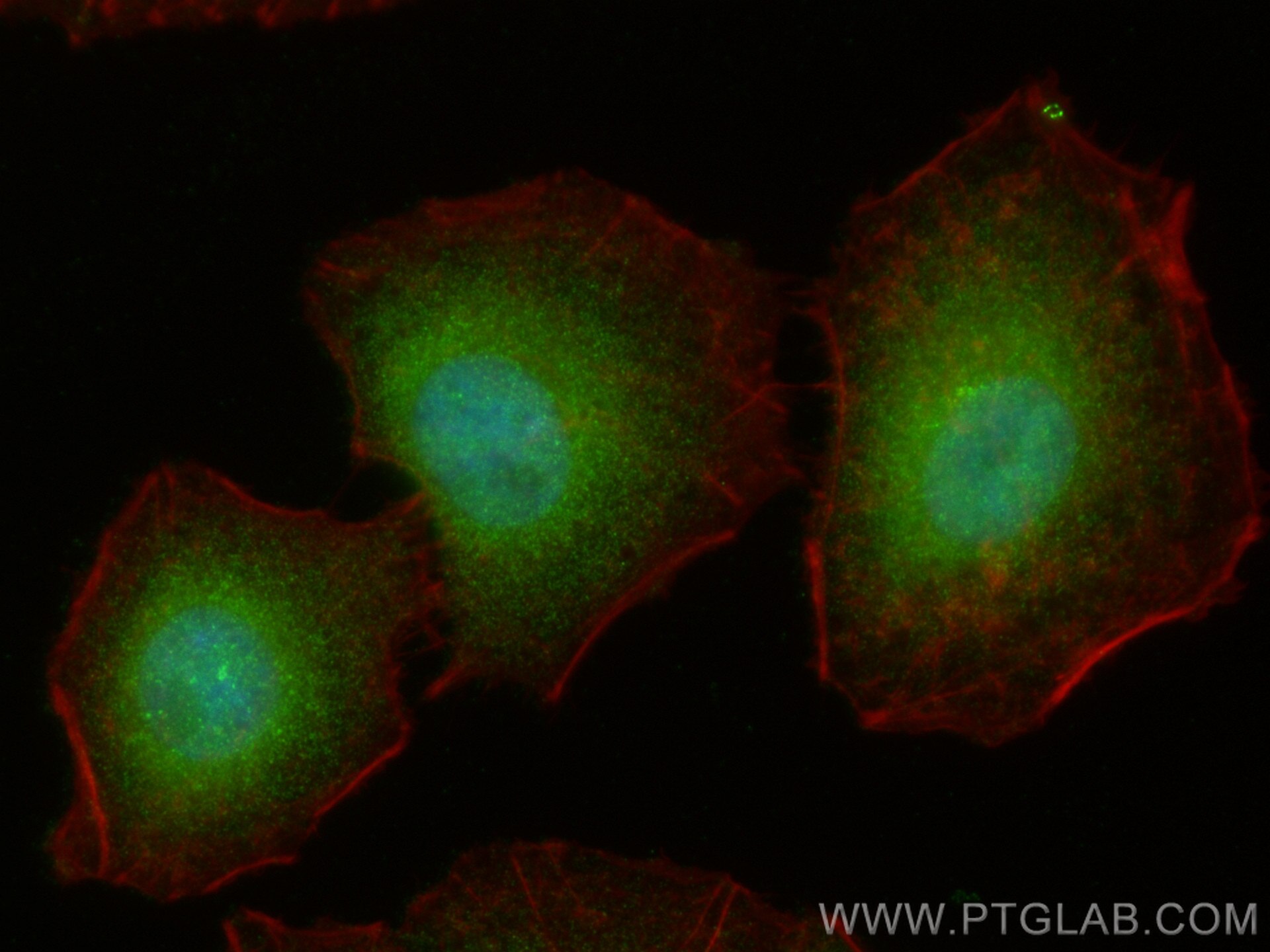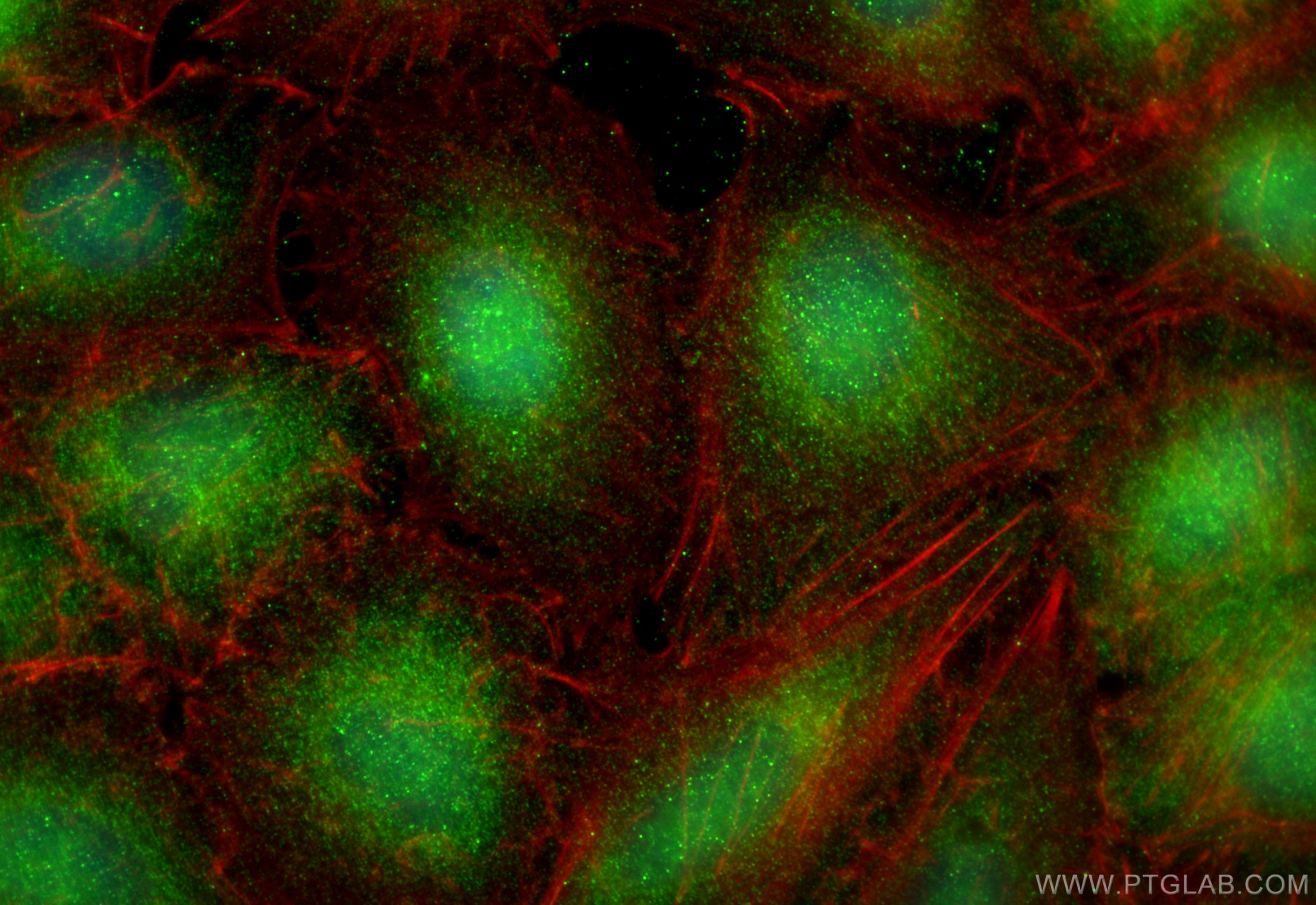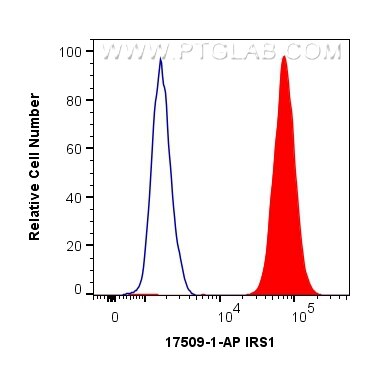- Featured Product
- KD/KO Validated
IRS1 Polyklonaler Antikörper
IRS1 Polyklonal Antikörper für WB, IHC, IF/ICC, FC (Intra), IP, ELISA
Wirt / Isotyp
Kaninchen / IgG
Getestete Reaktivität
human und mehr (4)
Anwendung
WB, IHC, IF/ICC, FC (Intra), IP, Dot blot, ELISA
Konjugation
Unkonjugiert
Kat-Nr. : 17509-1-AP
Synonyme
Geprüfte Anwendungen
| Erfolgreiche Detektion in WB | A549-Zellen, A431-Zellen, HEK-293-Zellen, PC-3-Zellen |
| Erfolgreiche IP | A549-Zellen |
| Erfolgreiche Detektion in IHC | humanes Kolongewebe, humanes Mammakarzinomgewebe, humanes Lebergewebe Hinweis: Antigendemaskierung mit TE-Puffer pH 9,0 empfohlen. (*) Wahlweise kann die Antigendemaskierung auch mit Citratpuffer pH 6,0 erfolgen. |
| Erfolgreiche Detektion in IF/ICC | A549-Zellen |
| Erfolgreiche Detektion in FC (Intra) | MCF-7-Zellen |
Empfohlene Verdünnung
| Anwendung | Verdünnung |
|---|---|
| Western Blot (WB) | WB : 1:5000-1:50000 |
| Immunpräzipitation (IP) | IP : 0.5-4.0 ug for 1.0-3.0 mg of total protein lysate |
| Immunhistochemie (IHC) | IHC : 1:50-1:500 |
| Immunfluoreszenz (IF)/ICC | IF/ICC : 1:200-1:800 |
| Durchflusszytometrie (FC) (INTRA) | FC (INTRA) : 0.40 ug per 10^6 cells in a 100 µl suspension |
| It is recommended that this reagent should be titrated in each testing system to obtain optimal results. | |
| Sample-dependent, check data in validation data gallery | |
Veröffentlichte Anwendungen
| KD/KO | See 2 publications below |
| WB | See 78 publications below |
| IHC | See 12 publications below |
| IF | See 5 publications below |
| IP | See 2 publications below |
Produktinformation
17509-1-AP bindet in WB, IHC, IF/ICC, FC (Intra), IP, Dot blot, ELISA IRS1 und zeigt Reaktivität mit human
| Getestete Reaktivität | human |
| In Publikationen genannte Reaktivität | human, Hausschwein, Maus, Ratte, Riesenscheibenbrasse (Megalobrama amblycephala) |
| Wirt / Isotyp | Kaninchen / IgG |
| Klonalität | Polyklonal |
| Typ | Antikörper |
| Immunogen | IRS1 fusion protein Ag11714 |
| Vollständiger Name | insulin receptor substrate 1 |
| Berechnetes Molekulargewicht | 1242 aa, 132 kDa |
| Beobachtetes Molekulargewicht | 160-185 kDa |
| GenBank-Zugangsnummer | BC053895 |
| Gene symbol | IRS1 |
| Gene ID (NCBI) | 3667 |
| Konjugation | Unkonjugiert |
| Form | Liquid |
| Reinigungsmethode | Antigen-Affinitätsreinigung |
| Lagerungspuffer | PBS with 0.02% sodium azide and 50% glycerol |
| Lagerungsbedingungen | Bei -20°C lagern. Nach dem Versand ein Jahr lang stabil Aliquotieren ist bei -20oC Lagerung nicht notwendig. 20ul Größen enthalten 0,1% BSA. |
Hintergrundinformationen
Ins receptor substrate 1 (IRS1) was the first cloned and characterized member of the IRS family which are involved in ins receptor (IR) and ins-like growth factor I receptor (IGF-IR) signaling. IRS1 is phosphorylated by ins receptor tyrosine kinase and is involved in various cellular processes including DNA repair fidelity, transcriptional activity, and cell growth can support tumor development and progression. Mutations in this gene are associated with type II diabetes and susceptibility to ins resistance. IRS1 has a predicted molecular weight of 132 kDa, however, as a result of its extensive serine phosphorylation it separates on a SDS gel as a band of approximately 160-185 kDa.
Protokolle
| PRODUKTSPEZIFISCHE PROTOKOLLE | |
|---|---|
| WB protocol for IRS1 antibody 17509-1-AP | Protokoll herunterladen |
| IHC protocol for IRS1 antibody 17509-1-AP | Protokoll herunterladenl |
| IF protocol for IRS1 antibody 17509-1-AP | Protokoll herunterladen |
| IP protocol for IRS1 antibody 17509-1-AP | Protokoll herunterladen |
| STANDARD-PROTOKOLLE | |
|---|---|
| Klicken Sie hier, um unsere Standardprotokolle anzuzeigen |
Publikationen
| Species | Application | Title |
|---|---|---|
Cell Metab Augmentation of scleral glycolysis promotes myopia through histone lactylation | ||
Mol Cell KARATE: PKA-induced KRAS4B-RHOA-mTORC2 supercomplex phosphorylates AKT in insulin signaling and glucose homeostasis | ||
Autophagy BNIP3L/Nix-induced mitochondrial fission, mitophagy, and impaired myocyte glucose uptake are abrogated by PRKA/PKA phosphorylation. | ||
Environ Health Perspect Effects of Chronic Secondhand Smoke (SHS) Exposure on Cognitive Performance and Metabolic Pathways in the Hippocampus of Wild-Type and Human Tau Mice. | ||
JHEP Rep Human umbilical cord mesenchymal stem cell-derived exosomes ameliorate liver steatosis by promoting fatty acid oxidation and reducing fatty acid synthesis | ||
Int J Biol Macromol Lycium barbarum polysaccharide mitigates high-fat-diet-induced skeletal muscle atrophy by promoting AMPK/PINK1/Parkin-mediated mitophagy |
